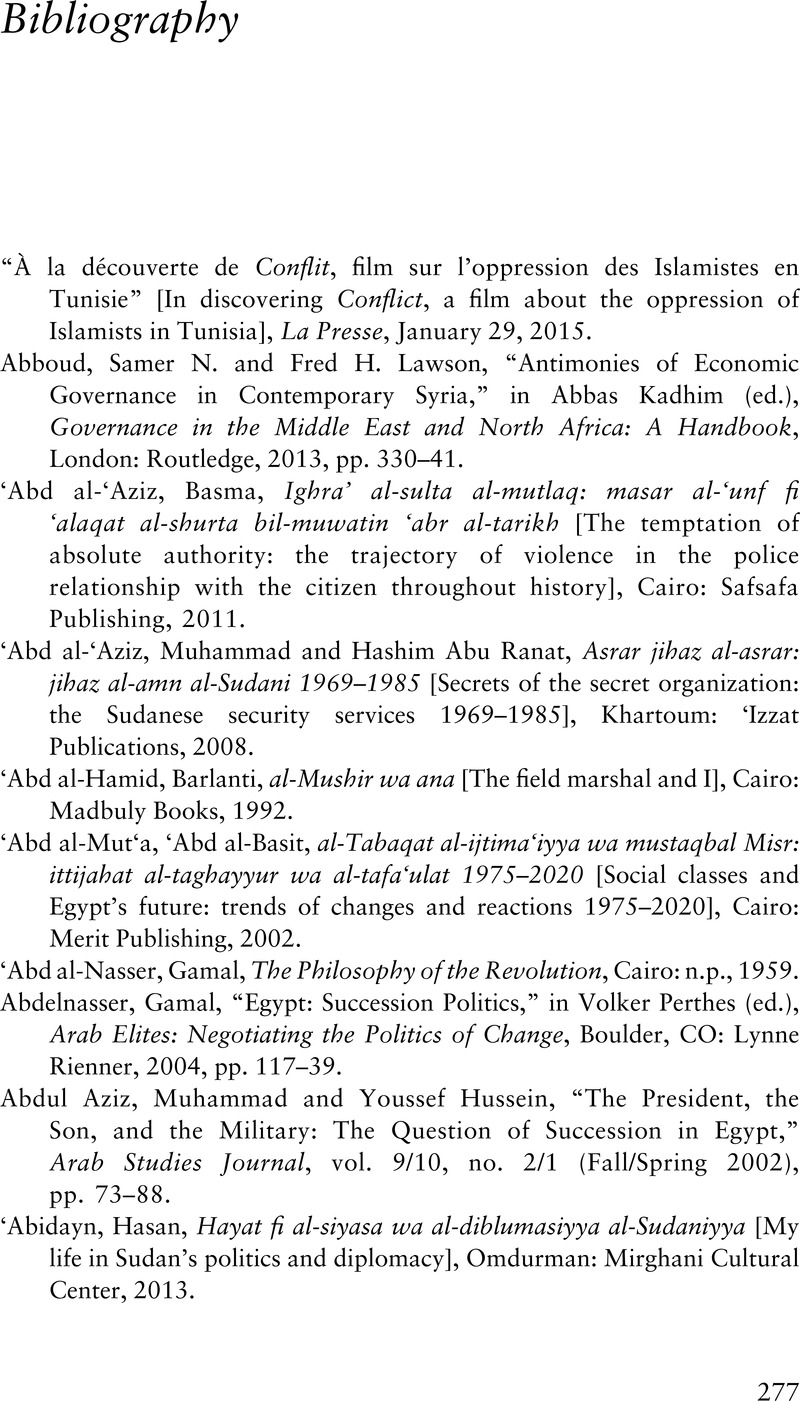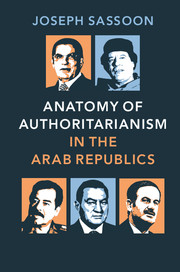Book contents
- Frontmatter
- Dedication
- Contents
- List of tables
- Acknowledgments
- Notes on transliteration
- Glossary and abbreviations
- Map of the eight Arab republics
- Introduction
- 1 Political memoirs in the Arab republics
- 2 Party and governance
- 3 The military
- 4 The role of security services in the Arab republics
- 5 Economy and finance
- 6 Leadership and the cult of personality
- 7 Transition from authoritarianism
- Conclusion
- Appendix Timeline of major events in the Arab republics
- Bibliography
- Index
- References
Bibliography
Published online by Cambridge University Press: 05 March 2016
- Frontmatter
- Dedication
- Contents
- List of tables
- Acknowledgments
- Notes on transliteration
- Glossary and abbreviations
- Map of the eight Arab republics
- Introduction
- 1 Political memoirs in the Arab republics
- 2 Party and governance
- 3 The military
- 4 The role of security services in the Arab republics
- 5 Economy and finance
- 6 Leadership and the cult of personality
- 7 Transition from authoritarianism
- Conclusion
- Appendix Timeline of major events in the Arab republics
- Bibliography
- Index
- References
Summary

- Type
- Chapter
- Information
- Anatomy of Authoritarianism in the Arab Republics , pp. 277 - 314Publisher: Cambridge University PressPrint publication year: 2016

